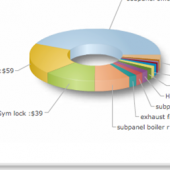
This paper will explore the Energy for ME program, funded by the Environmental Protection Agency and the National Science Foundation, which worked across formal and informal K-12 environments to bridge the gap between society, science, and the environment. Specifically, this article documents how Energy for ME integrates three experiential education pedagogies (place-based education, inquiry, and project-based learning) in combination with real-world electricity data in order to impact energy consumption within participating communities. Energy for ME schools and communities have saved over $135,000 in homeowner electricity costs, 900,000 lbs of carbon, and 1,000,000 kWh of energy) in electricity costs over the 3 years of the project.
Continue Reading